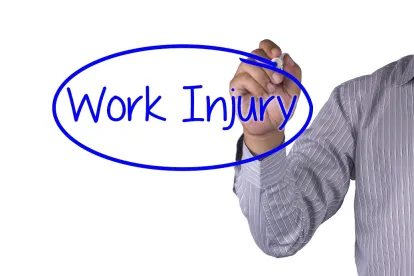Governor Mike DeWine signed House Bill 75 on June 29, 2021, appropriating budget funding for the Ohio Bureau of Workers’ Compensation (BWC) for the 2022-2023 biennium and enacting some pro-employer changes to workers’ compensation law. These changes include:
-
Requiring claimants in receipt of salary continuation to wait 26 weeks after their last payment to file an application for permanent partial disability (PPD);
-
Requiring claimants who have been previously denied permanent total disability (PTD) to show new and changed circumstances before re-applying for the benefit; and
-
Reducing the statute of limitations for an occupational disease claim from two years to one year from the date the disability due to the disease began.
These are welcome changes for employers. In particular, requiring injured workers to wait 26 weeks after their last installment of wage continuation to request PPD should encourage some injured workers to return to work so they become eligible for a PPD award sooner. Requiring a showing of new and changed circumstances for a claimant to re-request PTD will discourage frivolous pursuits of this coveted benefit. Oftentimes, when a claim reaches a point where PTD is potentially viable, new and changed circumstances may be difficult to demonstrate. That said, the same “new and changed circumstances” are required to request an increase in permanent partial disability, and such requests are often granted even when no such circumstances exist. Lastly, reducing the statute of limitations for occupational disease claims should decrease the overall number of such claims.
There are two additional amendments in House Bill 75. One, endorsed by the Ohio Association of Justice, will permit claimants’ attorneys to file a power of attorney enabling them to cash benefit checks on behalf of their clients. The other, endorsed by the Ohio Association of Broadcasters, brings about changes to the “journalist exception” promulgated by R.C. 4123.88(D). These changes help guarantee a claimant’s attorney cannot enter into an agreement with a journalist for the purpose of soliciting work from injured workers. The amendment requires the BWC to disclose certain personal information about claimants to journalists upon request, and requires journalists to attest that information received from the BWC will not be used for purposes beyond reporting. Violation of this policy can lead to civil penalties.
The biennium budgetary provisions of House Bill 75 also resulted in the return to in-person hearings that may have come earlier than some expected. The Industrial Commission returned to in-person hearings on July 6, but parties to a claim now have the option to call in rather than attend physically (this was always an option for injured workers, though infrequently utilized). Parties who opt not to attend in person must waive their right to an in-person hearing. This waiver is not necessary for parties represented by attorneys or non-attorney representatives attending in person. Otherwise, a waiver is required, either orally (if the party is represented by an attorney appearing remotely) or in writing (if the party is represented by a non-attorney representative appearing remotely).
House Bill 75 becomes law on Monday, Sept. 27, 2021.




 />i
/>i

